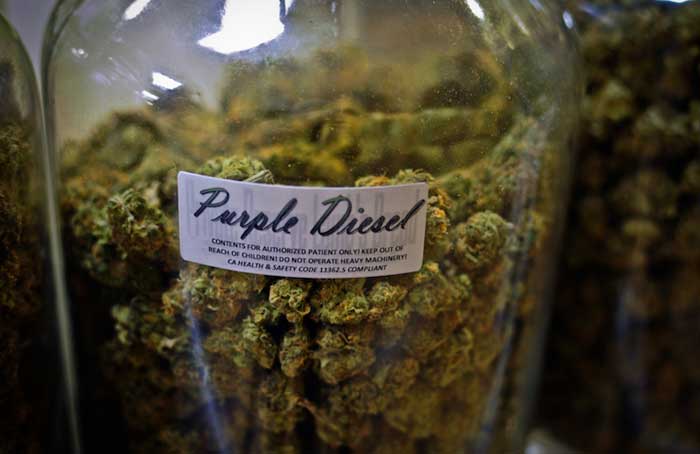The movement for racial equity in the medical cannabis trade appears to be going bipartisan last week, Maryland’s Republican governor, Larry Hogan, ordered the state to conduct a study on whether racial disparities exist in the process for obtaining a state license for growing or selling medical marijuana.
This doesn’t seem like a thing that needs much studying: Of the initial 15 preliminary licenses awarded by the Medical Cannabis Commission last year to grow the plant, none of them went to a company owned or controlled by an African American. That’s a pretty clear disparity. And it didn’t need to be that way.
The Maryland law that legalizes growing and selling medical cannabis includes language directing the Medical Cannabis Commission to “actively seek to achieve racial, ethnic, and geographic diversity” when licensing new growers and dispensaries. Maryland’s Legislative Black Caucus and the African American Cannabis Association have been pressing the state to make good on that language. The caucus introduced bills that would have created additional licenses set aside for non-whites, but they failed to pass. “Unfortunately, when minority inclusion has been written into legislation, there is a struggle to gain support and passage into law,” AACA’s spokesperson Joe Gaskins, told the Afro, a Baltimore-based black newspaper.
Those bills also required the state to conduct a racial disparity study before awarding additional licenses; when they didn’t pass, the black caucus asked Gov. Hogan to order a disparity study anyway. Hogan’s April 27 directive asks the Governor’s Office of Minority Affairs, the Medical Cannabis Commission, and the state’s Department of Transportation to immediately get started on a study, to be completed “as expeditiously as possible.”
The outcome is that white people end up earning profits on a product that landed millions of African Americans in prison for decades.
However, the state already completed a disparity study, released on February 8, looking at opportunities for African Americans, women, and racial minorities to start businesses in the general (non-weed) business market. The results weren’t great: The 562-page report concluded that “minorities and women are substantially and significantly less likely to own their own businesses as the result of discrimination than would be expected based upon their observable characteristics, including age, education, geographic location, and industry.”
Among the report’s findings:
- Overall annual average wages for African Americans, from 2010 to 2014, were 37 percent lower than for similarly situated white men—a “large and statistically significant” difference.
- Overall annual earnings for self-employed African Americans during the same time were 41.8 percent lower than for white males.
- The business formation rates for African Americans were 2.4 percentage points lower than for white men.
All of these disparities held true for Latinos, Asians, and Native Americans as well, showing “large, adverse, and statistically significant” differences, compared to their white counterparts. The report also found that minority-owned firm loan requests were “substantially more likely to be denied than non-minorities,” even when controlling for firm size and credit history.
These kinds of racial inequities in the general business market could not have been resolved in just the past couple of months. It’s also unlikely that the medical cannabis industry is set up to produce different results. Already, some of the winning white-owned companies have come out against new rules favoring minority cannabis entrepreneurs—“We as a group here all received A’s on the test … but there are a lot of people who didn’t receive an A who are complaining about the administration,” SunMed Growers president Jake Van Wingerden told The Washington Post.
Consumers alone automatically disadvantages many African Americans seeking to enter the legal marijuana trade. African Americans are only 30 percent of Maryland’s population, but made up 58 percent of pot possession arrests in 2013 according to an ACLU report. That report also found that African Americans in Maryland were twice as likely as whites to be arrested for weed possession in 2001—by 2010, African Americans were three times as likely as whites to be arrested.
Criminal records prevent African Americans from getting jobs and state contracts, disqualifying them from pursuing entrepreneurial opportunities. The outcome is that white people end up capitalizing on a product that landed millions of African Americans in prison for decades.
Fortunately, Maryland has a model for where to take its study: The racial equity permit program for growing and selling medical cannabis in Oakland, California figures in how discriminatory drug law enforcement has devastated African-American communities. It seeks to privilege black entrepreneurs in the legalized marijuana industry, and to make sure that weed legalization doesn’t end up widening the current wealth and unemployment racial gaps. That program that was developed after Oakland conducted its own racial disparity study—a report that Maryland is free to learn from as well.







